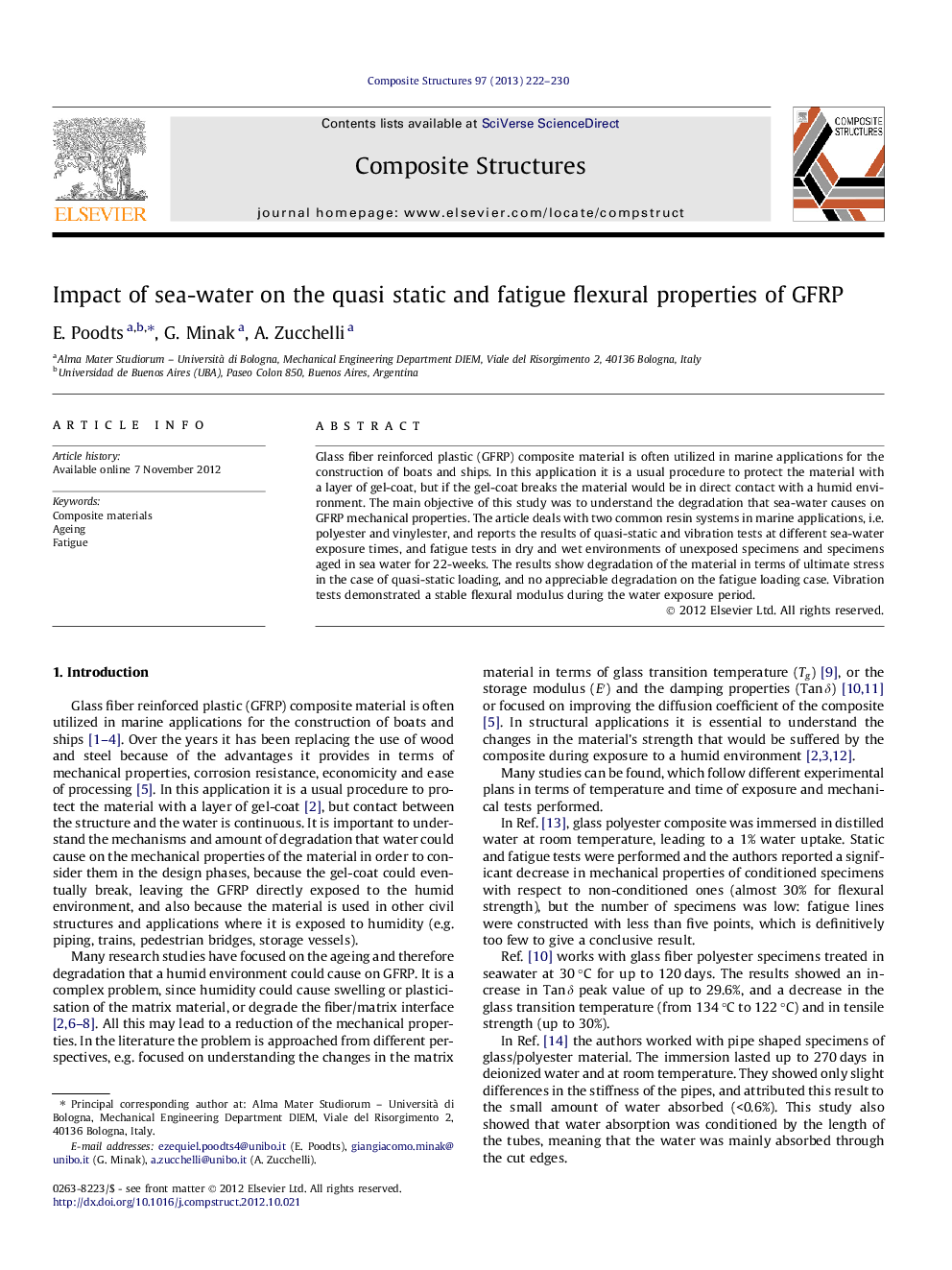| Article ID | Journal | Published Year | Pages | File Type |
|---|---|---|---|---|
| 252106 | Composite Structures | 2013 | 9 Pages |
Glass fiber reinforced plastic (GFRP) composite material is often utilized in marine applications for the construction of boats and ships. In this application it is a usual procedure to protect the material with a layer of gel-coat, but if the gel-coat breaks the material would be in direct contact with a humid environment. The main objective of this study was to understand the degradation that sea-water causes on GFRP mechanical properties. The article deals with two common resin systems in marine applications, i.e. polyester and vinylester, and reports the results of quasi-static and vibration tests at different sea-water exposure times, and fatigue tests in dry and wet environments of unexposed specimens and specimens aged in sea water for 22-weeks. The results show degradation of the material in terms of ultimate stress in the case of quasi-static loading, and no appreciable degradation on the fatigue loading case. Vibration tests demonstrated a stable flexural modulus during the water exposure period.
